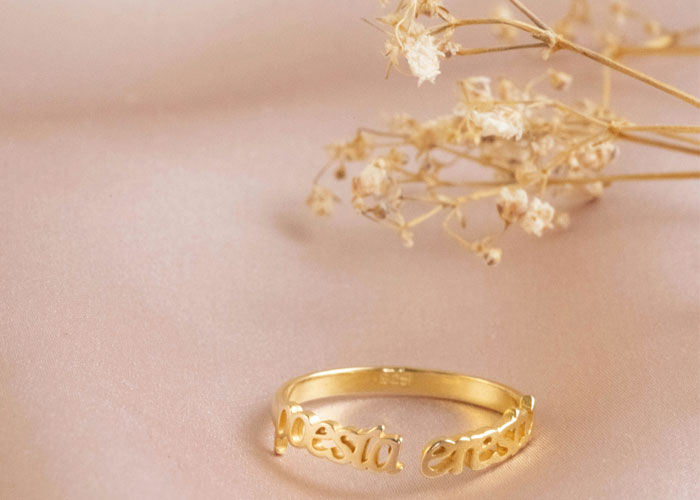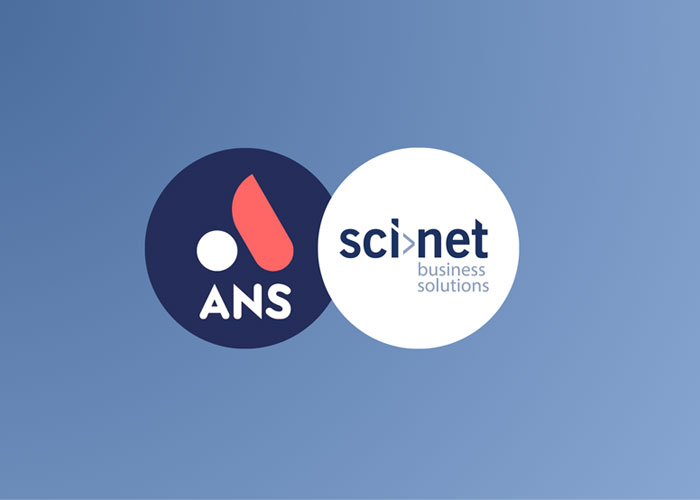This feature appeared in a recent issue of Professional Jeweller, written by our MD Duncan Fergusson.
The jewellery retail industry stands at the cusp of a technological revolution, where artificial intelligence (AI) and automation are reshaping traditional business models and customer experiences. As we progress through 2025, these technologies are already proving instrumental in streamlining operations, optimising supply chains and delivering unprecedented personalisation in customer service. This trend is only set to continue as technology develops and evolves at a rapid rate, with more and more retailers and suppliers embracing its capabilities.

The evolution of inventory management
The jewellery sector’s unique characteristics – high-value items, seasonal demand fluctuations and emotional purchase drivers – have historically made inventory management particularly challenging. Today though, advanced algorithms are transforming how retailers approach stock control, creating more efficient and responsive systems.
Although not quite in widespread play yet, modern AI-powered inventory management systems are set to revolutionise how jewellers maintain optimal stock levels.
These sophisticated platforms will combine analysis of historical sales data and seasonal trends with real-time customer behaviour to accurately predict demand – painting an up-to-date picture that gives retailers unprecedented insight.
This predictive capability will enable jewellery retailers to maintain ideal stock levels, thereby reducing the chances of overstocking and/or stockouts that can lead to lost sales opportunities. It also offers major benefits to suppliers too as it can provide forecasted requirements, thereby speeding up the time to market, as suppliers can make products in advance.
Real-time inventory tracking is something that’s become increasingly sophisticated over time, with automated systems monitoring stock levels across multiple locations and multiple channels. When inventory reaches predetermined thresholds, automated reordering processes are triggered – helping to ensure consistent stock availability, whilst also minimising human error in the replenishment process.
Another hugely beneficial development is promotional event modelling. For specific events such as Black Friday, retailers will be able to ramp up stocks using a promotional calendar, with AI determining an increase in cover through analysis of historic throughput based on the type of promotion.
Transforming the supply chain
The jewellery supply chain has traditionally been complex. Involving numerous stakeholders – from refiners to manufacturers to retailers – it also requires the careful tracking of precious materials. Automation is streamlining these processes, introducing new levels of efficiency and transparency, as well as enhanced security.
Modern supply chain management systems provide improved visibility throughout the entire journey – from raw material sourcing to final delivery. This transparency not only improves efficiency, it also addresses growing consumer demand for ethical sourcing and sustainability in the jewellery industry.
Automated logistics systems are another thing that’s revolutionising order fulfilment, with advanced warehousing solutions enabling faster and more accurate processing. These systems reduce handling times, while minimising errors and optimising shipping routes – all of which helps to secure significant cost savings, while seeing improved customer satisfaction at the same time.
Elevating the customer experience
Perhaps the most visible impact of AI in jewellery retail is in its enhancement of the customer experience. The implementation of virtual try-on technology – powered by advanced AI algorithms – is transforming how customers shop for jewellery. These systems allow customers to visualise how pieces will look on them before making a purchase, and it really plays into the emotional aspect. People can truly appreciate the look of any prospective jewellery they’re looking to buy, helping to encourage them to commit to the purchase due to the simple fact that they like what they see.

An added benefit is that this significantly reduces return rates, while also increasing customer confidence in online purchases. The ability to try something on is one of the core benefits of shopping on the high street and now those retailers who are purely online can tap into what’s traditionally been a powerful tool of persuasion previously outside of their reach.
The benefits don’t stop there though, with AI-driven personalisation extending beyond virtual try-ons. Sophisticated recommendation engines analyse customer preferences based on their purchase history and their browsing behaviour to suggest pieces that align with their individual tastes. I’m sure you’re familiar with online adverts following you around based on things you’ve looked at previously, but this level of personalisation is only set to increase – and it’s something that can help retailers create a more engaging shopping experience, while driving sales through targeted suggestions.
The integration of AI chatbots and virtual assistants is also revolutionising customer support in the jewellery sector. These systems provide instant, 24/7 assistance and are capable of handling routine queries about products, pricing and availability as soon as customers enquire. Their use helps free up human staff to focus on the more complex customer interactions that require emotional intelligence and more advanced expertise to handle them efficiently. Striking a balance between the two offerings – intelligent, instantaneous bots combined with access to nuanced humans – can really elevate jewellery retailers’ customer response times and quality of service.

The rise of customisation
Customisation has also become a key differentiator in the jewellery market, with automation making bespoke pieces more accessible than ever. Advanced 3D visualisation tools allow customers to design their perfect piece, choosing everything from metal type to stone settings. These systems generate realistic renders that give customers confidence in their custom designs before production begins.
The automation of customisation processes has significantly reduced production times and costs for bespoke pieces. Computer-aided design (CAD) and manufacturing systems translate customer preferences into precise specifications, ensuring consistent quality whilst maintaining the artisanal aspects that luxury jewellery buyers expect.
Omnichannel excellence
Success in modern jewellery retail depends heavily on seamless integration between your online and offline channels. AI and automation can now facilitate this integration, ensuring consistent inventory visibility and pricing across all channels whilst maintaining the personalised service levels that luxury jewellery customers expect – an important consideration in a high end market.
Operational efficiency through technology
The implementation of automated systems in manufacturing and production has led to significant improvements in operational efficiency too. These systems maintain precise quality control whilst increasing production capacity and reducing waste. For instance, at Sci-Net, we facilitate process driven manufacturing, which allows a bill of materials to be ‘tweaked’ on an order by order basis, rather than starting from scratch each time. Advanced manufacturing techniques, combined with automated quality assurance processes, ensure consistent product quality whilst optimising resource utilisation.
Additionally, budgeting how long a process should take versus what it actually took helps to keep the margins where they should be. Analysing any increases to the budget highlights where potential sales prices need to be factored in – again, something that can be achieved through automation.
Industry innovation in action
Leading jewellery retailers are already implementing these technologies to great effect. For instance, we work with Missoma, which has partnered with AGR for advanced stock calculations, demonstrating how third-party integrations can enhance inventory management capabilities. Similarly, Jessica McCormack, another client of ours, has embraced digital transformation by implementing Shopify to streamline operations and enhance customer experiences.
The role of specialised solutions
In this evolving landscape, specialised technology solutions play a crucial role. Sci-Net’s ERP>Jewellery, built within Microsoft Dynamics 365 Business Central, exemplifies how tailored solutions can address the unique challenges of jewellery retail. It’s a comprehensive platform that integrates every aspect of jewellery business management, from supply chain and inventory control to customer relationship management and financial accounting.
ERP’s ability to provide real-time insights into business operations enables jewellers to remain agile and responsive to market trends and customer demands. Whether serving independent jewellers or larger chains, such specialised solutions help optimise operations and enhance customer experiences through integrated technology.

At an individual level, implementing AI tools such as Microsoft’s Copilot Studio allows you to build a suite of tools that reflect your specific needs – enabling you to manage multiple channels and tools that fit with the specific day-to-day requirements of your job role, whether that be manufacturer, supplier, retailer or other ancillary position.
Looking ahead
As we move deeper into 2025, the role of AI and automation in jewellery retail continues to evolve. Virtual showroom functionality, such as virtual ring stylers, is becoming more sophisticated, with some retailers implementing live feeds that allow customers to select specific stones and visualise their choices in 3D renderings. These technological advances are not just improving operational efficiency; they’re fundamentally changing how customers interact with jewellery brands.
The integration of AI and automation in jewellery retail represents more than just technological advancement; it’s a fundamental shift in how the industry operates and serves its customers. Whilst maintaining the traditional aspects that make jewellery shopping special – the personal touch, the emotional connection and the artisanal quality – these technologies are enabling retailers to operate more efficiently and serve customers more effectively.
As the industry continues to evolve, successful retailers will be those who balance technological innovation with the personal touch that jewellery customers expect. The future of jewellery retail lies in harmonising artificial intelligence and automation with human expertise and craftsmanship, creating experiences that are both efficient and emotionally resonant.
The journey toward digital transformation in jewellery retail is ongoing, and those who embrace these technologies whilst maintaining their commitment to quality and personal service will be best positioned to thrive in this new era of retail excellence.
If you are interested in learning more on how our ERP>Jewellery or any of our ERP solutions can help your business, please call us on:
01869 349949 Or email: hello@sci-net.co.uk












